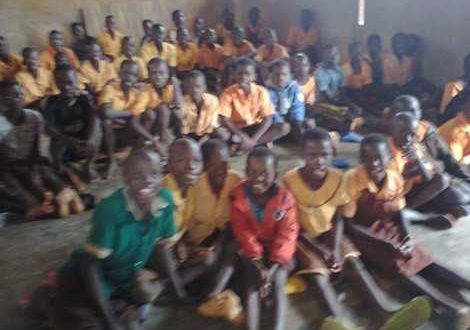It is no secret that sport betting is a growing phenomenon which appears to be a profitable business venture in Ghana. Sport betting is a form of gambling that entails placing a wager, also known as a bet, on the outcome of a sporting event.
The most common sporting event in contemporary time that attracts betting businesses is competitive football across the globe, including the most fancied European leagues and championships.
The primary intent of sport betting is to win additional money.
However, what is oblivious to many is how much destruction this business is exerting on the education of our children and the youth.
Study
A study conducted by the Baraka Policy Institute (BPI) in selected communities in Accra, Kumasi, Takoradi and Tamale on the topic “Effects of Sport Betting on Education and Child Development in Ghana” reveals that sport betting is fast becoming a serious social force against schooling in the country and that if nothing is done about it, it will derail the effort by government and other non-state actors to ensure every child is in school.
One of the revelations of the BPI research suggests that children between the ages of 10 and 17 actively engage in sport betting at various betting centres in Ghana.
Out of the 360 respondents who were found in sampled betting centres in Accra, Kumasi, Tamale and Takoradi, 298, representing 82.8 per cent, were children between the ages of 10 and 17.
This, indeed, contravenes the Gambling Act 2006 (Act 721).
Part II subsection 48 of the Act which deals with Children Prohibition states that: “A person responsible for a gambling machine shall not permit a child to use the gambling machine or to enter a place where the gambling machine is operated”.
And yet this is happening without strict enforcement of the law.
Truancy
What is even more disturbing is that when these children were asked whether they go to school or not, 62.5 per cent of them responded in the negative. They have stopped going to school for gambling (sports betting).
As to how they get the money for gambling, your guess could be as good as mine.
And even the rest of the underage respondents who were asked about how often they go to school in a week, the study found that 49.2 per cent go to school one to three times a week.
This is very alarming and stakeholders must act as quickly as possible to safeguard the future of this generation.
Such social force against child education must be checked in order to ensure that these types of social obstacles do not derail our collective effort as a country towards achieving the Sustainable Development Goal 4 (SDG 4).
The SDG 4, which aims to “ensure inclusive and equitable quality education and promote lifelong learning opportunities for all” by 2030, will not materialise if sport betting keeps drawing our underage folks who are the future of our nation from school.
In fact, Target 1 of the SDG4 demands from all governments to ensure that by 2030, all girls and boys complete free, equitable and quality primary and secondary education leading to relevant and effective learning outcomes.
Lessons
Indeed, Ghana can learn from the positive efforts being made by many countries that are faced with this onslaught on education in order to safeguard the future of children.
For instance, the Ugandan government has recently taken good steps in curbing the growing negative impact of sport betting on children and youth by not renewing the licenses of betting companies to operate.
Kenya, which has the third-largest gambling market in Africa after Nigeria and South Africa, has also strengthened its resolve to minimize the growing effects of the betting industry on its youth by introducing a tax disincentive regime on the industry.
Even in countries where the football industry is recognized and known to be a huge economic activity such as Brazil, sports betting is illegal and never entertained.
Law enforcement
In all this, the least Ghana could do is to put in place strict enforcement of the provisions in the existing Gaming Act 2006 (Act 721) to protect innocent, vulnerable and gullible underage from being stolen from their innate dreams of becoming useful to themselves, their families, their communities and Ghana as a whole through education.
The Gaming Commission, District Assemblies, and all other relevant agencies must work together as a matter of urgency to enforce the existing law on gaming to protect and prevent children from engaging in sports betting.
Moreover, it is critical for relevant ministries, including the Ministries of Education and Gender, Children and Social Protection to begin a draft of a bill that will specifically introduce stricter provisions that protect children and our teeming youth from being consumed by the overflowing influence of sport betting on their education.
Sports betting is increasingly becoming a threat to Ghana’s effort towards achieving SDG 4 as an overarching mission for pre-tertiary education across the globe. Ghana cannot afford to be left behind, and so let us watch social forces against educational achievement such as the consequences of sports betting.
The writer is the Executive Director of the Baraka Policy Institute (BPI), a think tank on education and general wellbeing of the citizenry, especially the underprivileged in society.

